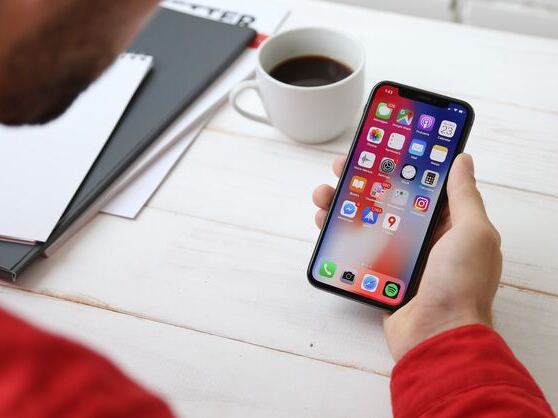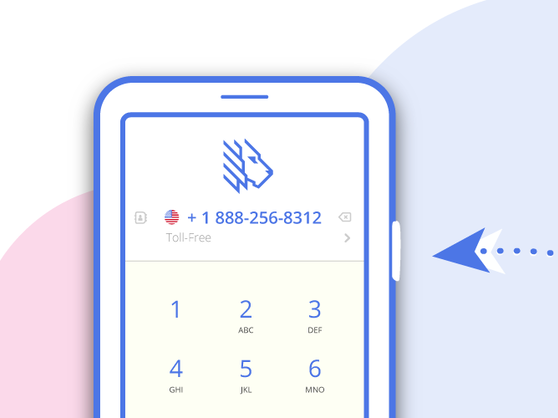This year’s iOS software update (iOS 13) came with lots of perks like the much-anticipated dark mode, a new photo/video editor, audio sharing for AirPods, and the cool QuickPath keyboard. What everyone’s talking about, though, is the “Silence Unknown Callers” feature that stops robocalls on iPhone for good. This is a feature new and unique to iOS 13.
The reason behind the hype is simple: robocalls are easily the plague of modern communications. To say they’re annoying and distracting is to say nothing. At their worst, robocalls intrude on privacy, steal sensitive information and pry into the user’s identity.
Robocalls are being fought on a federal level with Fed programs like “The National Do Not Call Registry” and FTC’s “Operation Call It Quits”. Meanwhile, tech giants like Apple are investing in AI-powered anti-robocall features to protect consumers from intrusions into their privacy.
In its September 2019 update, iOS 13, Apple now offers a unique built-in feature to help stop robocalls on iPhone.
The offer surely sounds enticing, but is it right for you?
How to stop robocalls on iPhone with “Silence Unknown Callers” in iOS 13
At the end of September, Apple released its latest iPhone update — iOS 13. This software update is compatible with iPhone models from 6s and up, which means if you have an older iPhone model, you can still go ahead and get this feature.
The setup process is really simple:
- To update to iOS 13 on an older iPhone, just click “Choose Software Update” in the Settings —> General tab.
- After the update is complete, go to Settings —> Phone and toggle the “Silence Unknown Callers” button to “On”.
The “Silence Unknown Callers” feature will then fight spam and robocalls by silencing unidentified calls and sending them directly to voicemail.
Note: Please read important information below before activating the setting.
iOS 13 “Silence Unknown Callers” feature: is it right for you?
Having your iPhone identify potential scammers on its own sounds great. But how exactly does the anti-robocall feature on iPhone work? And why should you think twice before turning it on?
The AI-powered technology behind it is fairly simple. If you’re getting a call from any number that you haven’t previously interacted with and have “Silence Unknown Callers” on, you won’t hear so much as a single ring. The call will simply go straight to your voicemail.
“Interacting” with a number means one of several things:
- Having the number stored in your Contacts
- Having the number in messenger/calling apps downloaded to your phone
- Previously contacting the number (even if it’s not in your Contacts or apps)
Obviously, the “Silence Unknown Callers” feature can be really helpful or really disturbing, depending on your personal communications needs and habits.
✓ Silence Unknown Callers is great for you if:
- You don’t own a business/are not a freelancer
- Your phone is for personal use only
- You have a separate business phone/office line and never forward business calls to your iPhone
- You interact via mobile phone with known contacts
❌ Silence Unknown Callers isn’t for you if:
- You use your mobile phone for business/freelancing
- You have lots of legitimate unknown calls coming in
- You communicate with a large number of colleagues via phone
If you decide to turn on the “Silence Unknown Callers” feature in iOS 13 remember to add all the important numbers (distant relatives, colleagues, medical and doctor’s offices, etc.) to your Contacts beforehand.
❗ For business users, “Silence Unknown Callers” will prevent ALL new clients from reaching you. It doesn’t matter whether clients are dialing your cell number or VoIP number. We strongly advise against activating this feature on VoIP business phone numbers.
Business alternatives to stop robocalls on iPhone
As we’ve seen, with a personal phone line things are pretty straightforward. But what if you’re using your phone for business purposes and need a selective spam filter that won’t interfere with your client calls?
If you want to stop robocalls on iPhone but blocking all unknown callers isn’t an option for you, there are several alternatives to the “Silence Unknown Callers” feature in iOS 13:
- Manually select numbers to block on your phone — If you get an annoying robocall, you may block all future calls from the same number by adding it to your phone’s spam list. This is good enough if you don’t have a ton of calls coming in and use your phone mostly for personal communication.
- Register your number with the “National Do Not Call Registry” —Register here to eliminate your number from commercial companies’ calling lists. Keep in mind this will only stop legit commercial calls and not scammers.
- Use third-party apps — Apps offer custom protection from robocalls. While there are free options available for your iPhone, opt for a premium provider if you want real protection.
- Use a virtual phone system for business — VoIP offers some of the best protection against robocalls for business purposes. The technology is extremely effective: since robocalls aren’t ‘real calls’ but automated messages meant to sound like humans, they need a straightforward path to get to you. With a VoIP phone system, you can set up free features like auto-attendant and call menus (fully iOS compatible). Since your non-human callers can’t “press a number” to reach a person in your company, they’ll automatically drop the call. Not only will this stop robocalls, but it will also give your business an effective credibility boost.
Final word
While iOS 13 has lots of terrific features that you’ll have fun unraveling all by yourself, “Silence Unknown Callers” isn’t a one-size-fits-all kind of deal.
If you’re a freelancer or entrepreneur, look into these better ways to stop robocalls on iPhone, developed with care for your business needs.






























